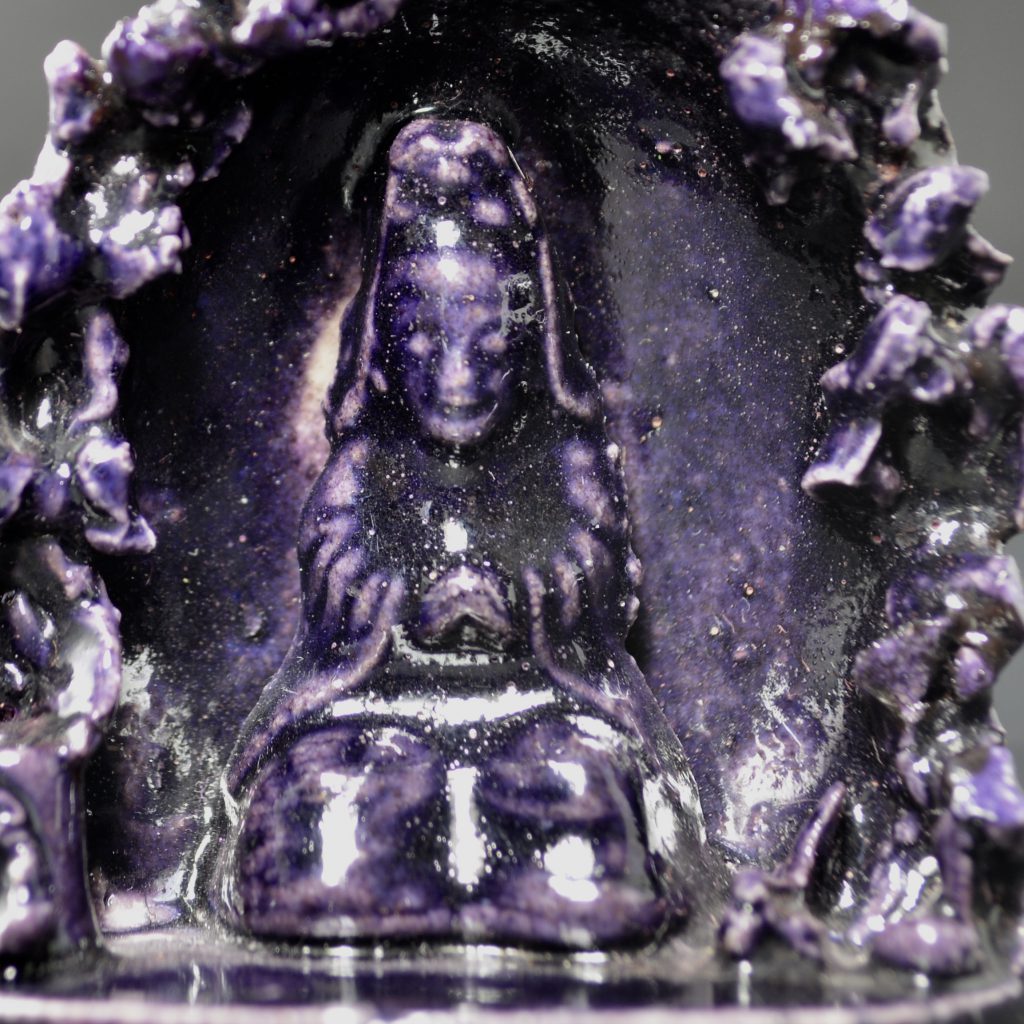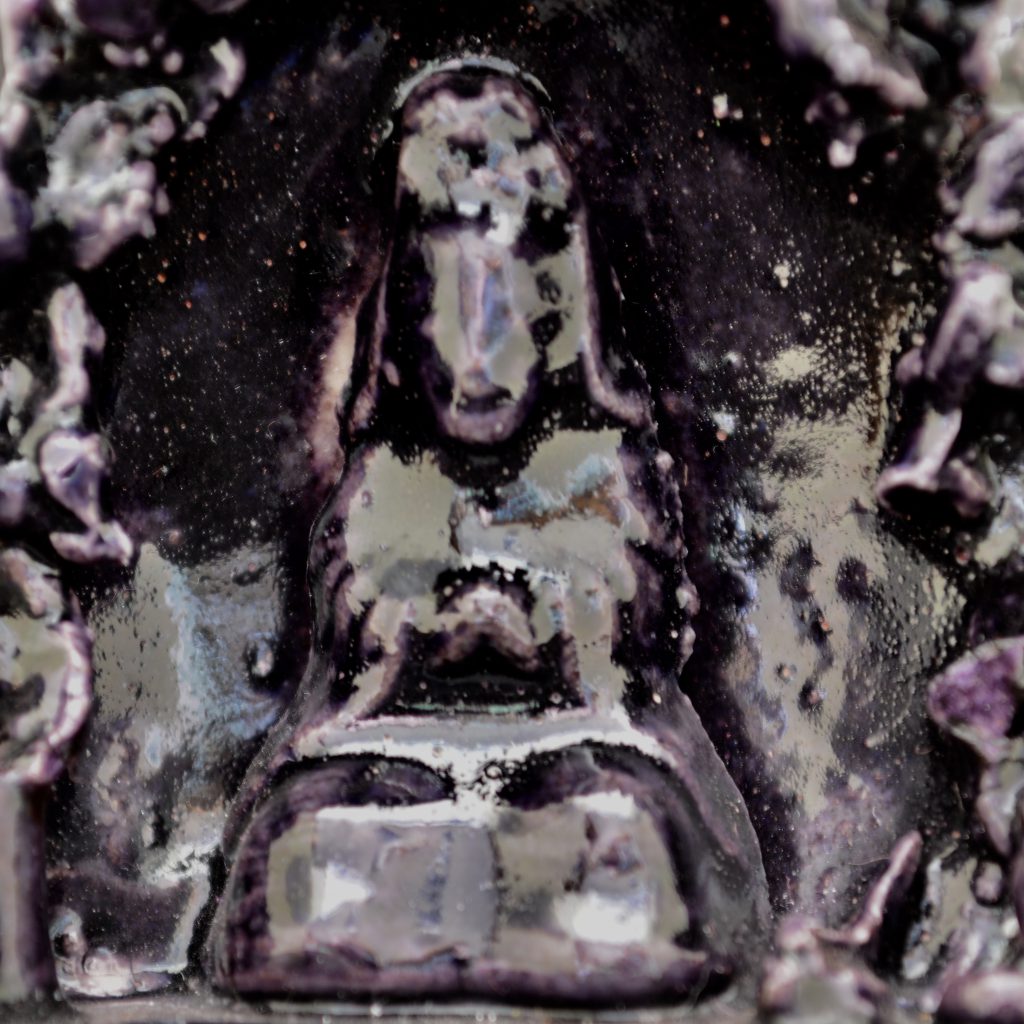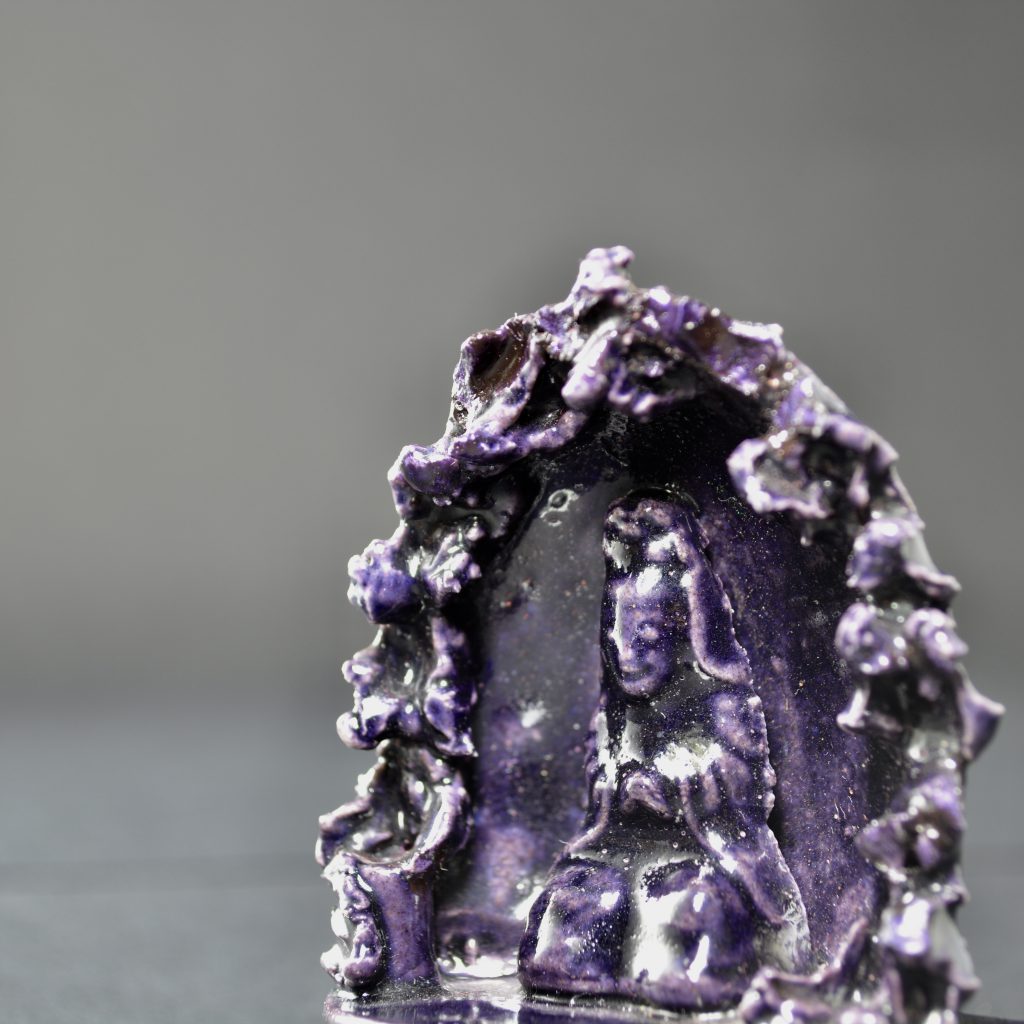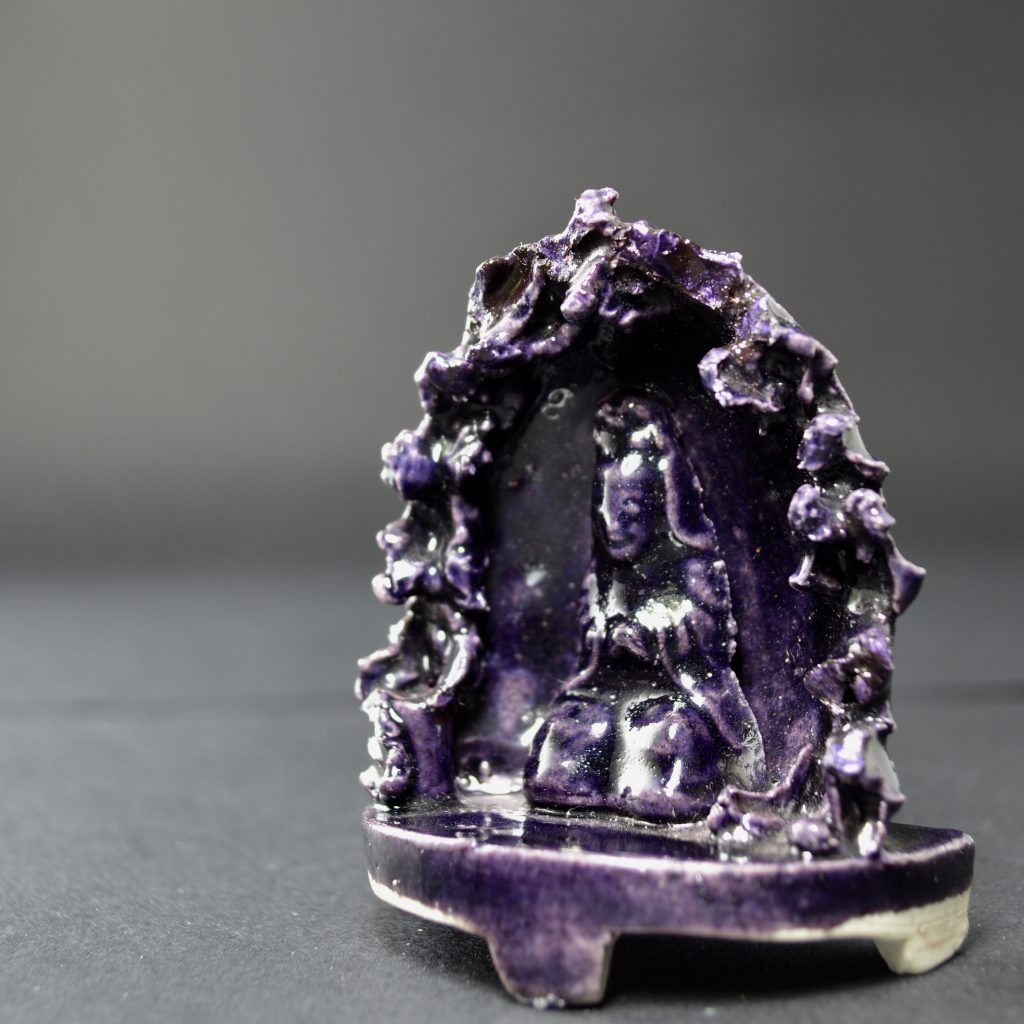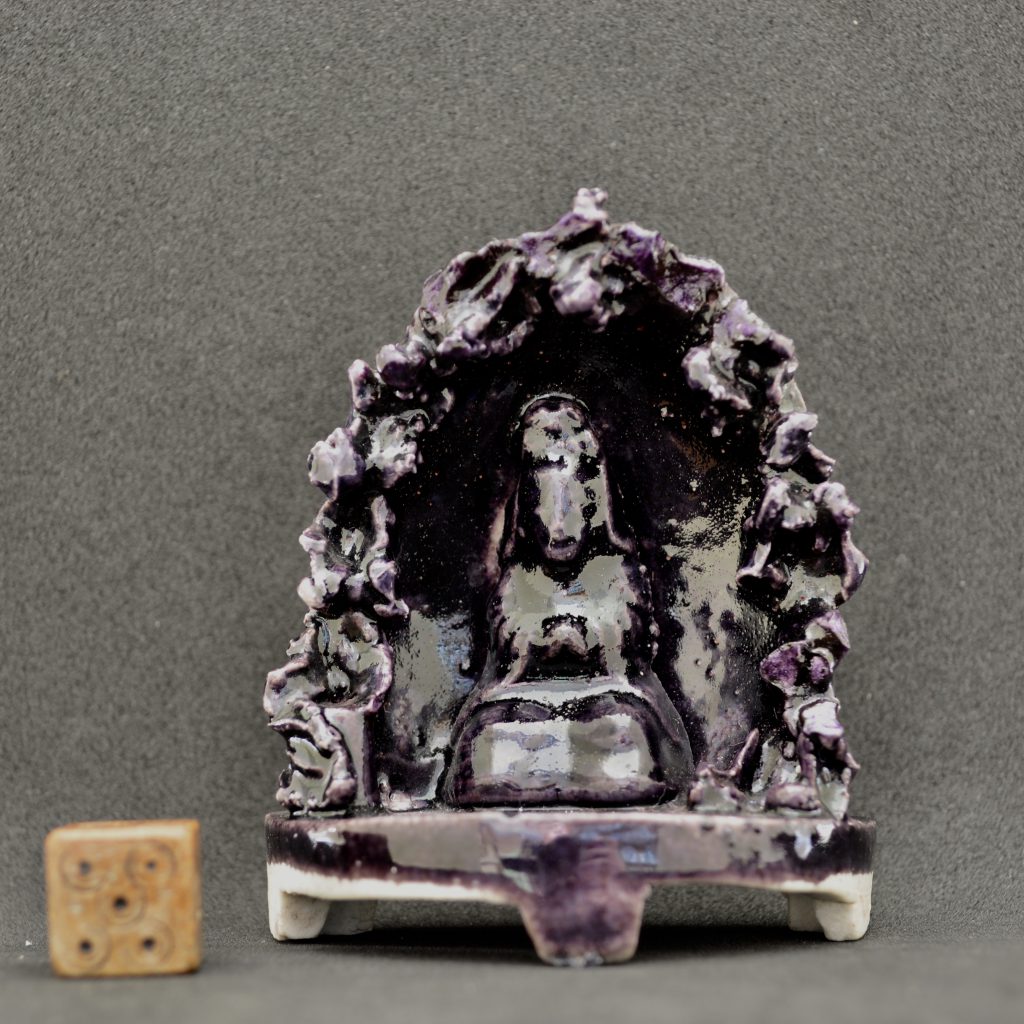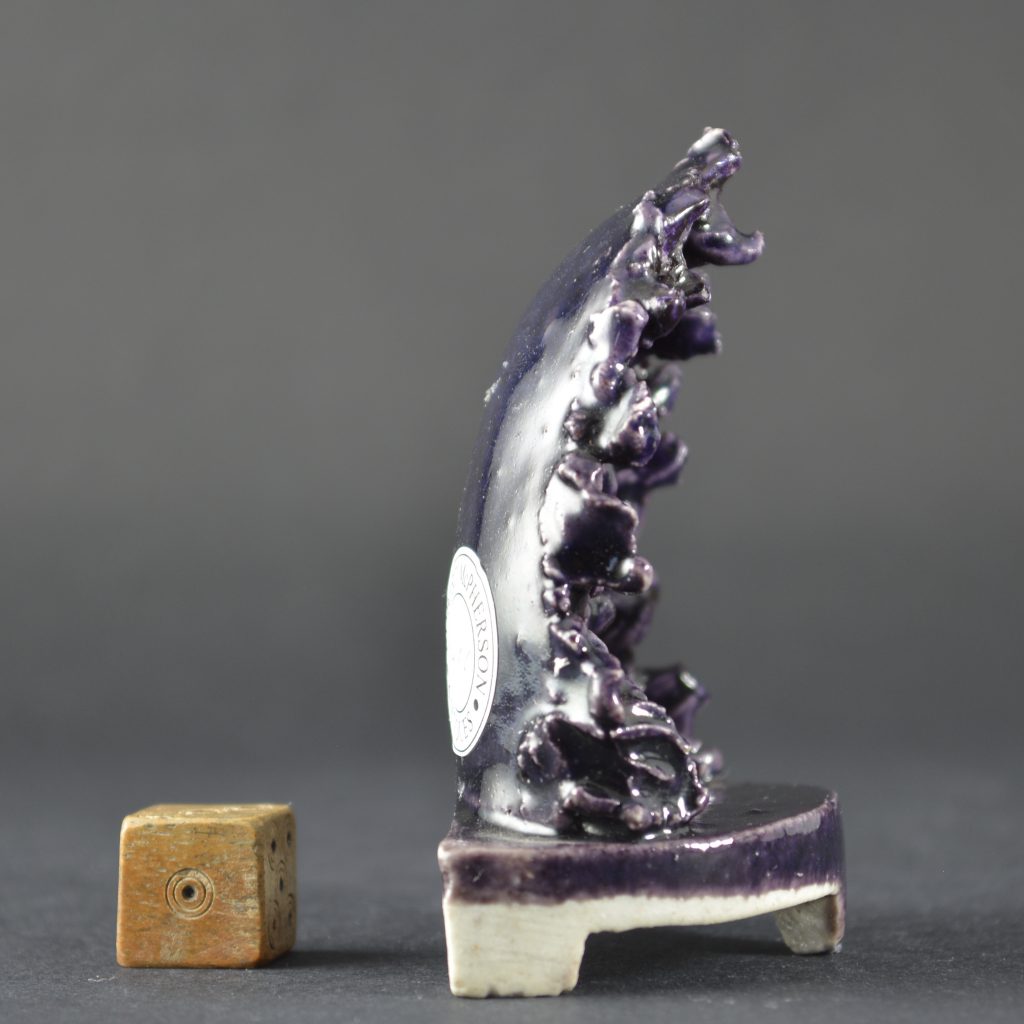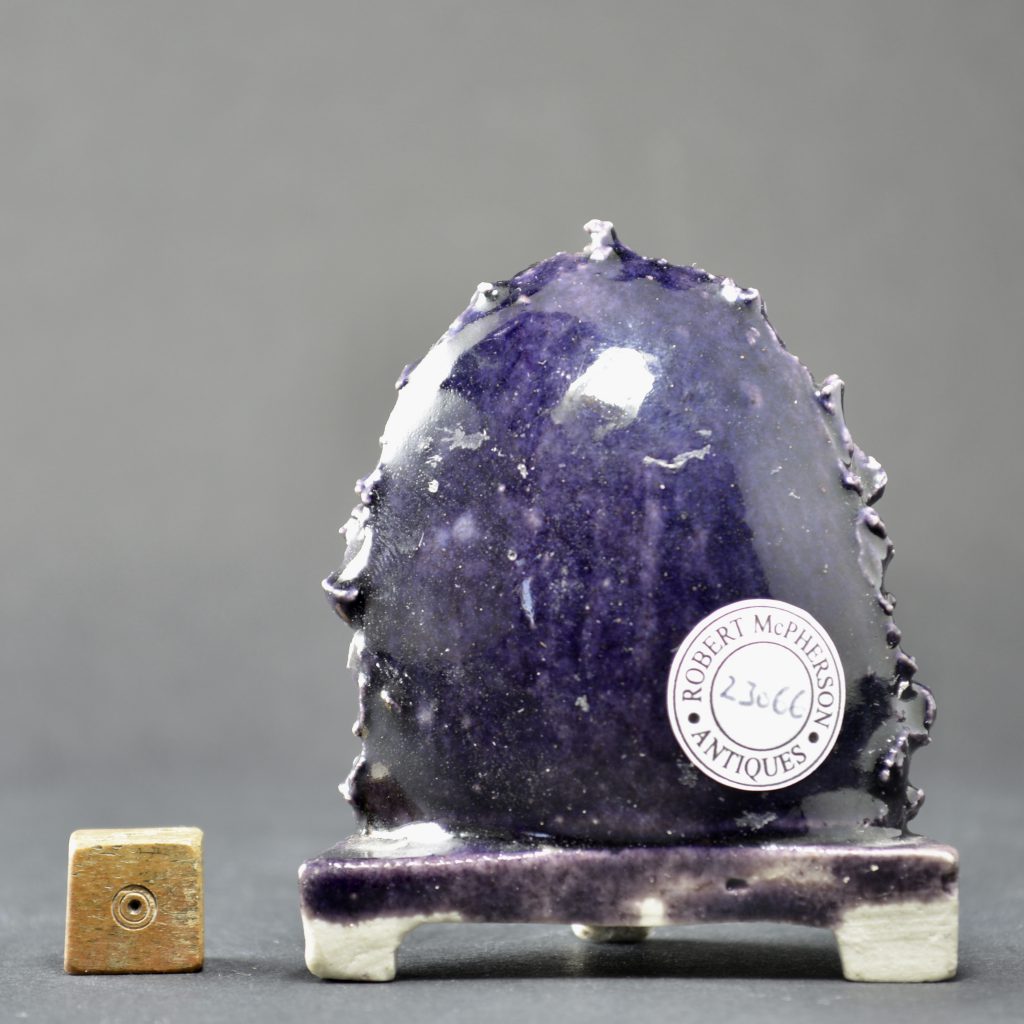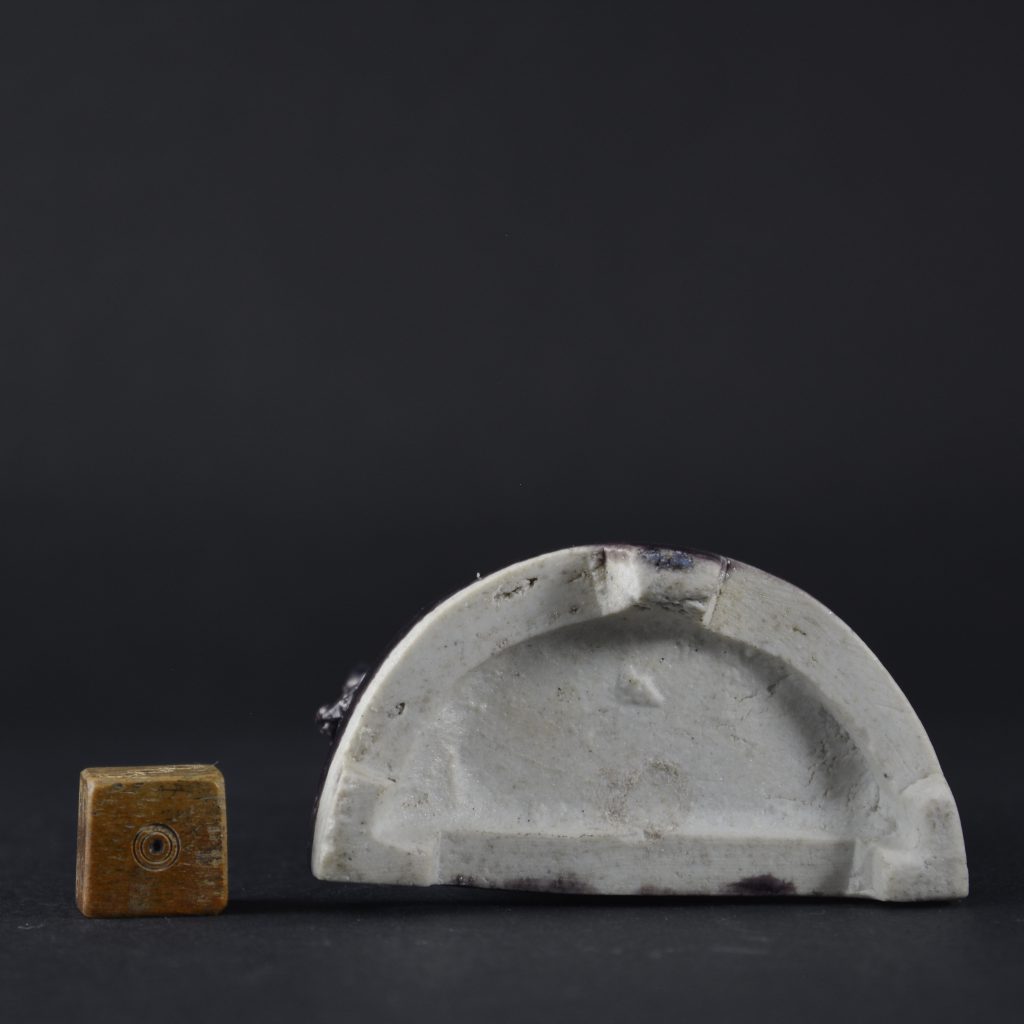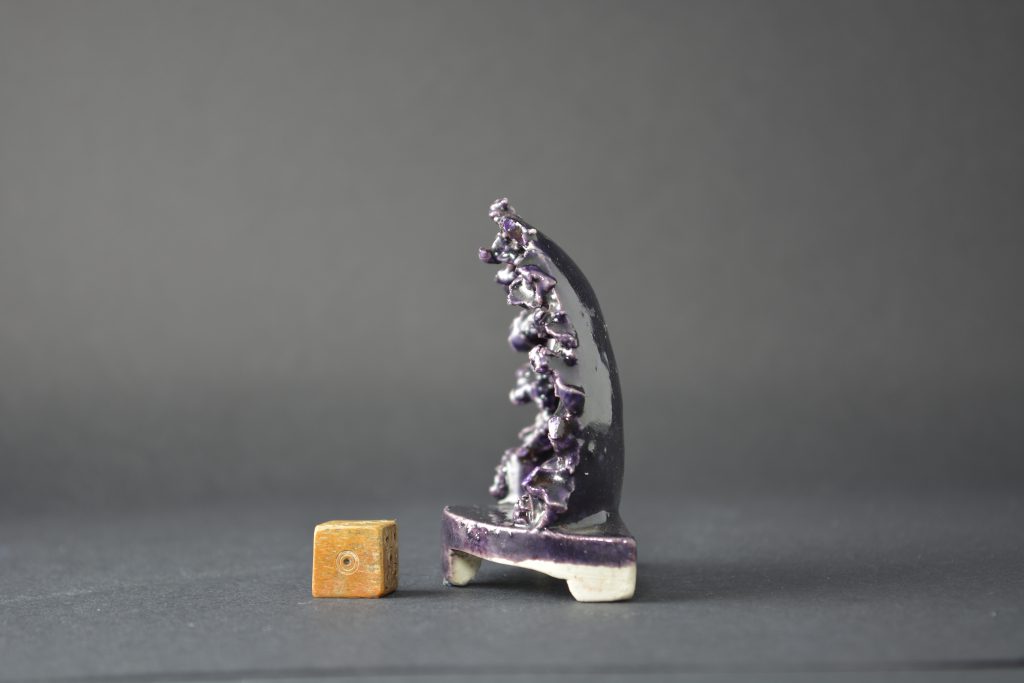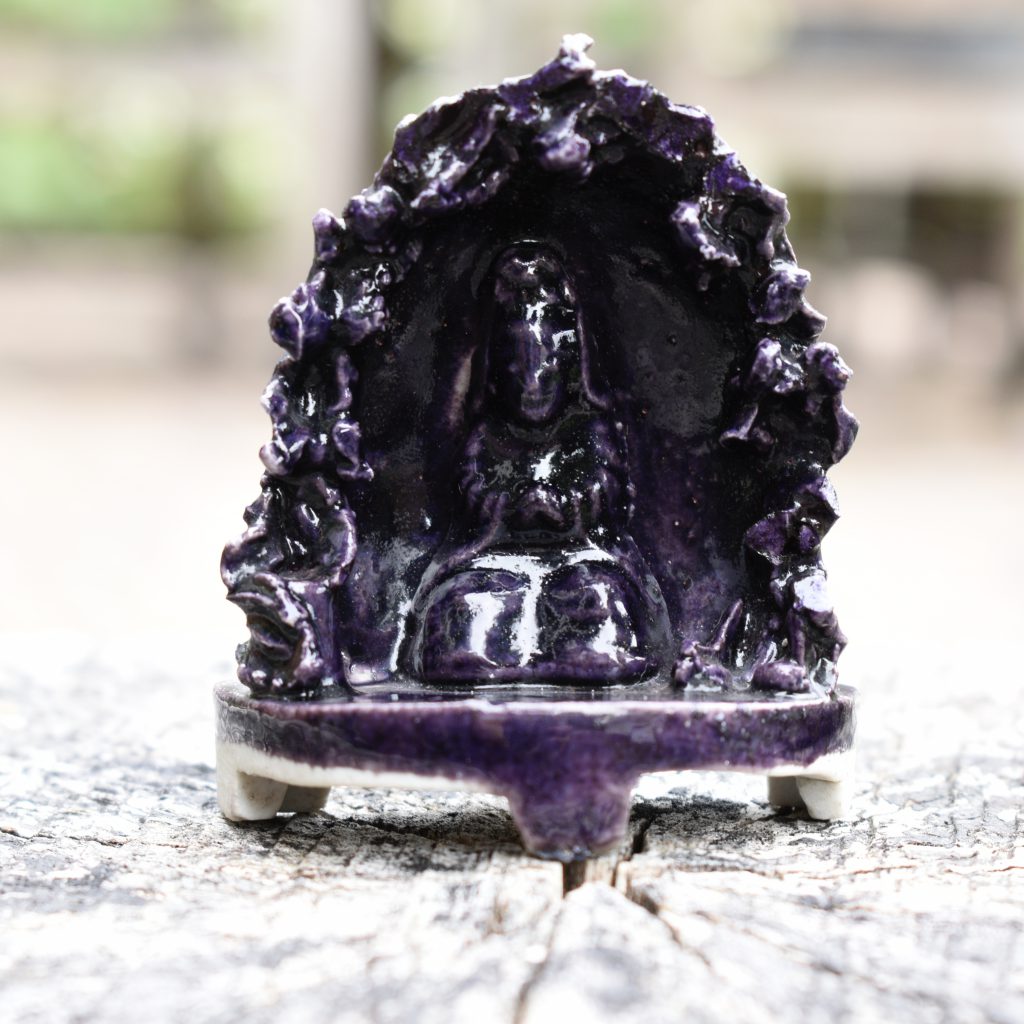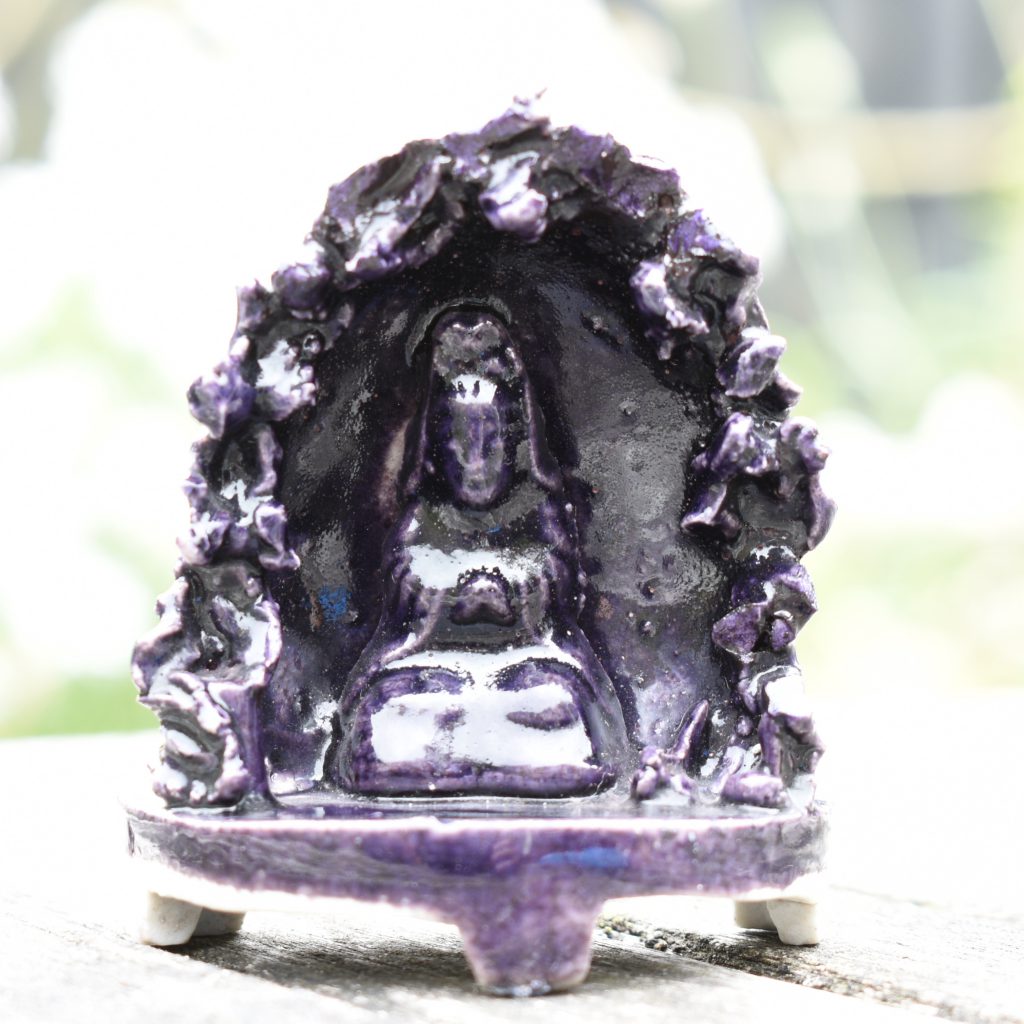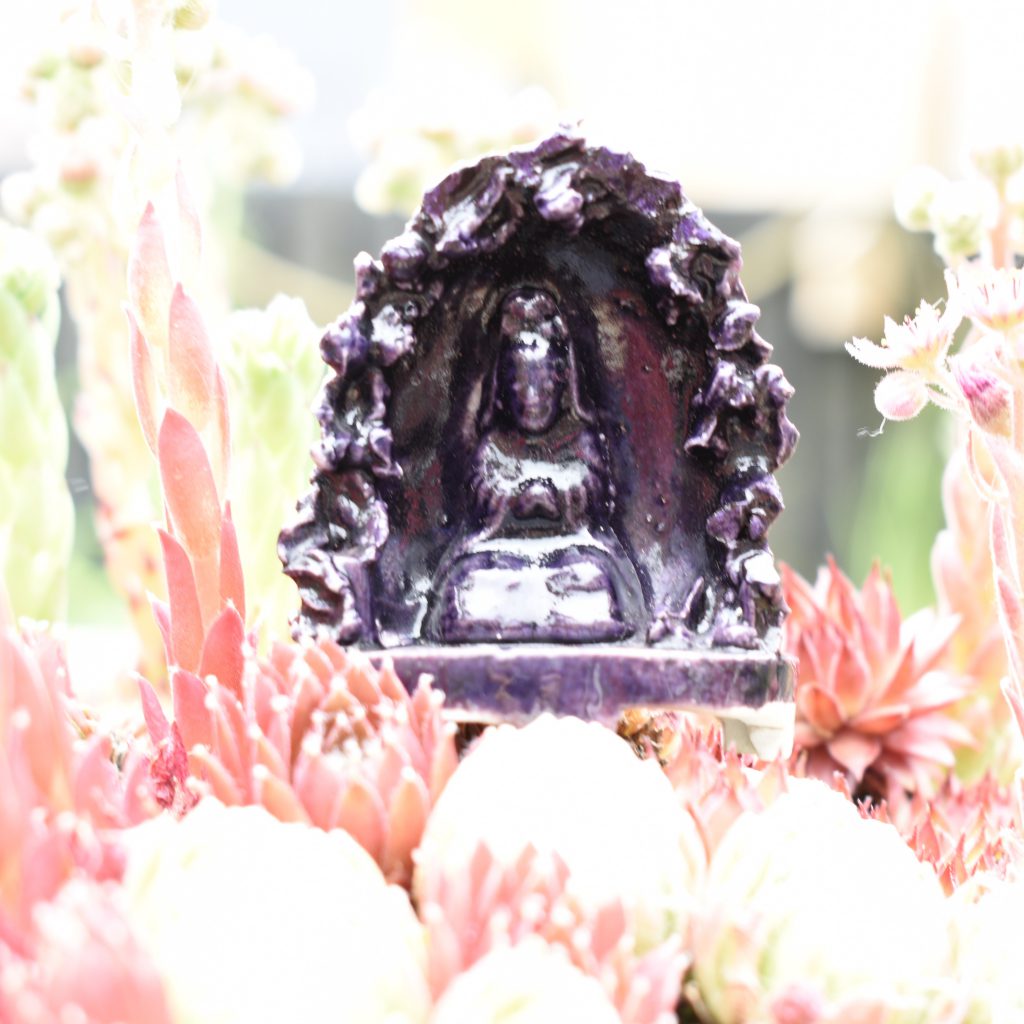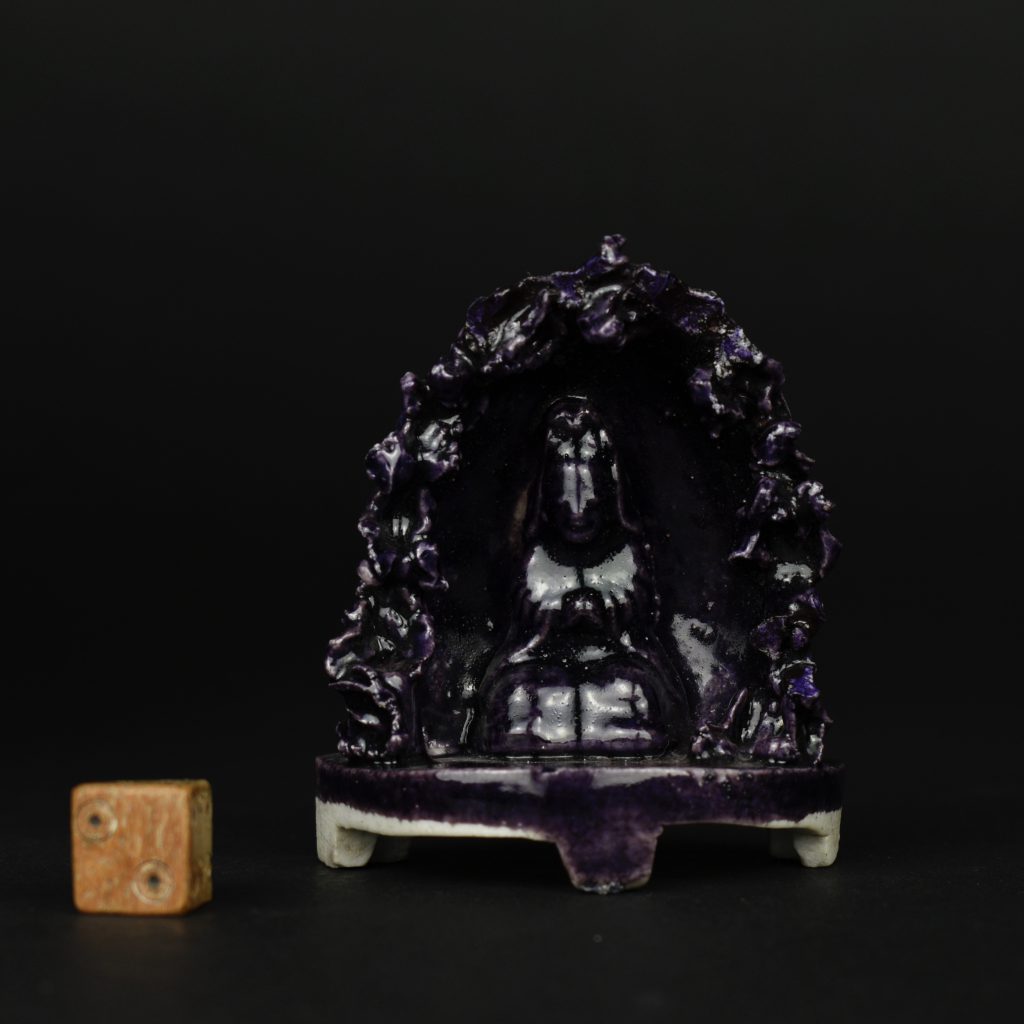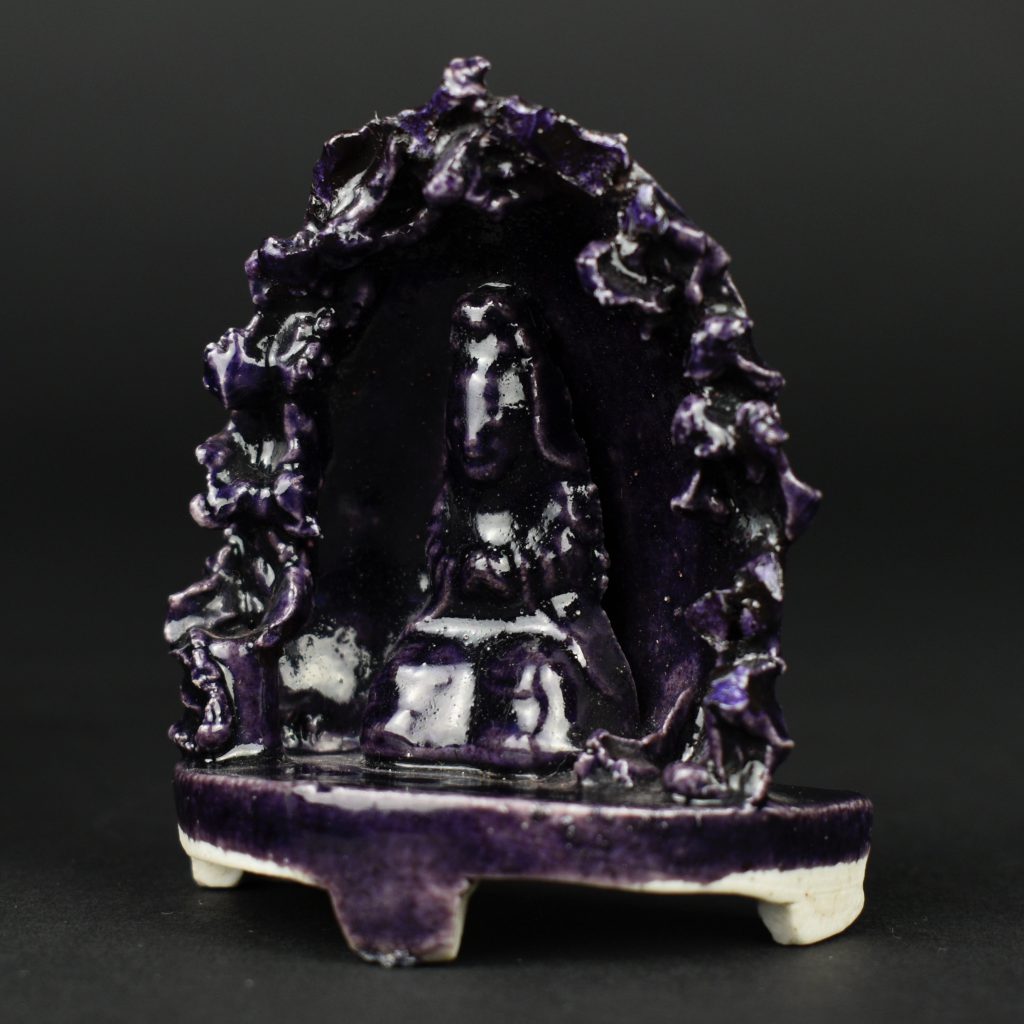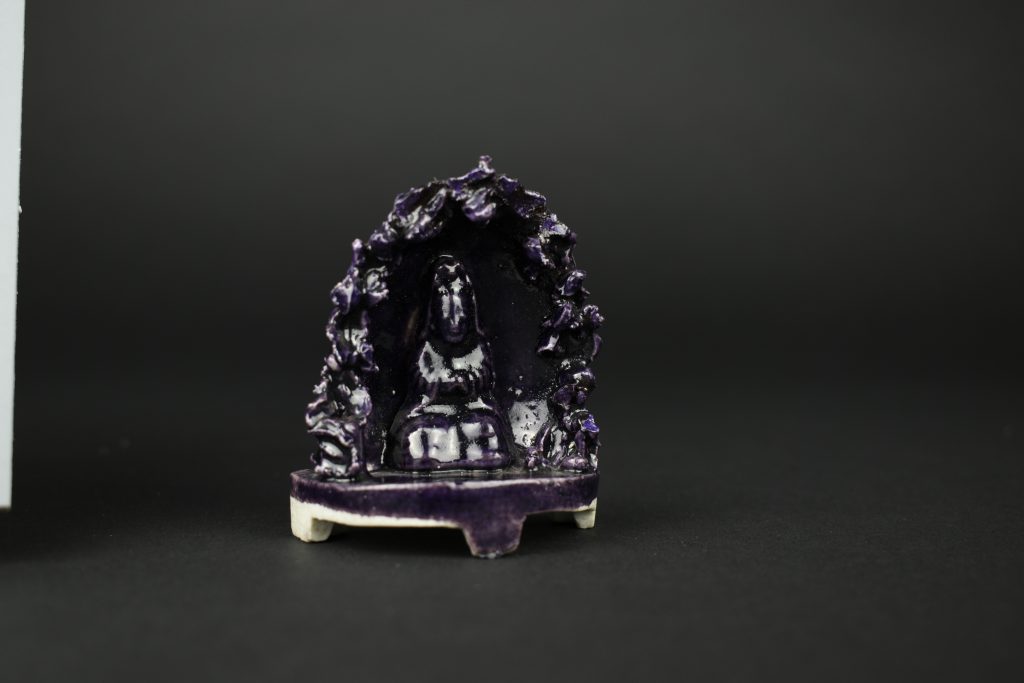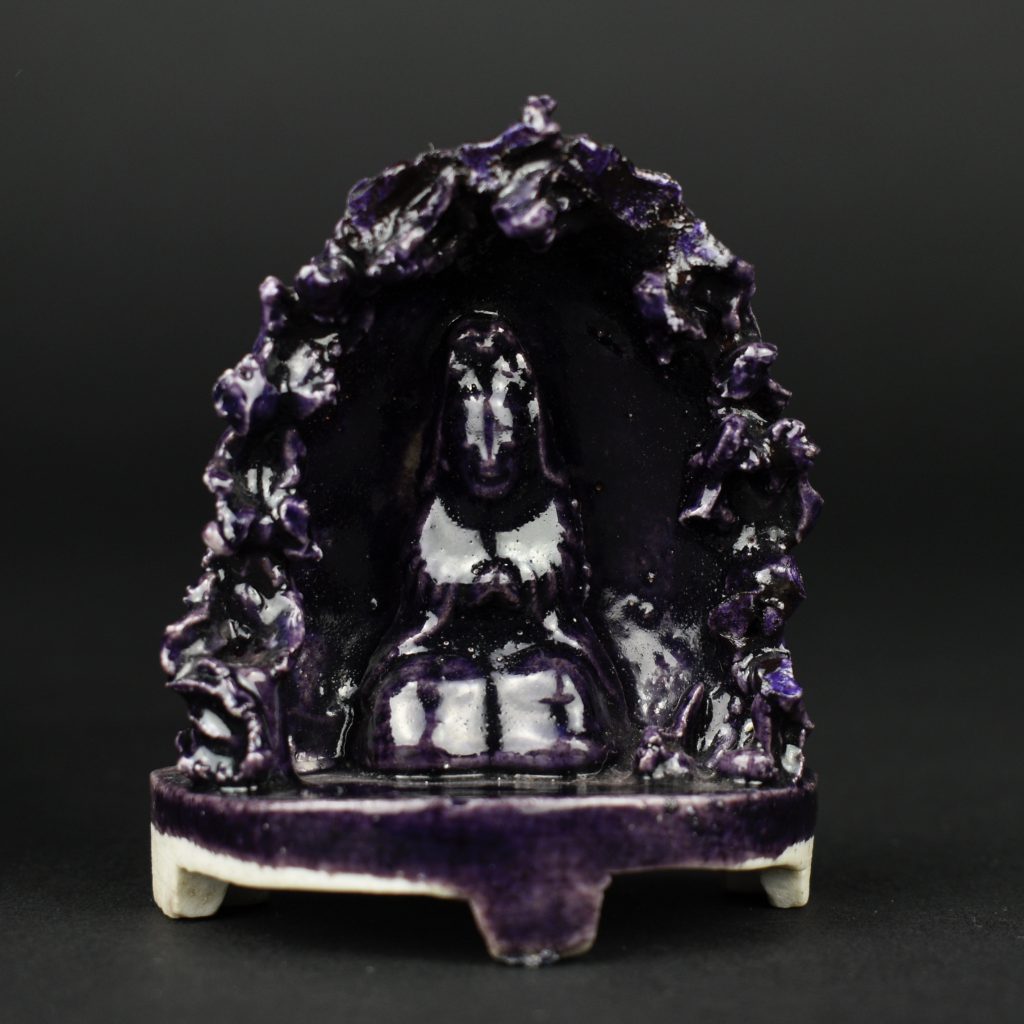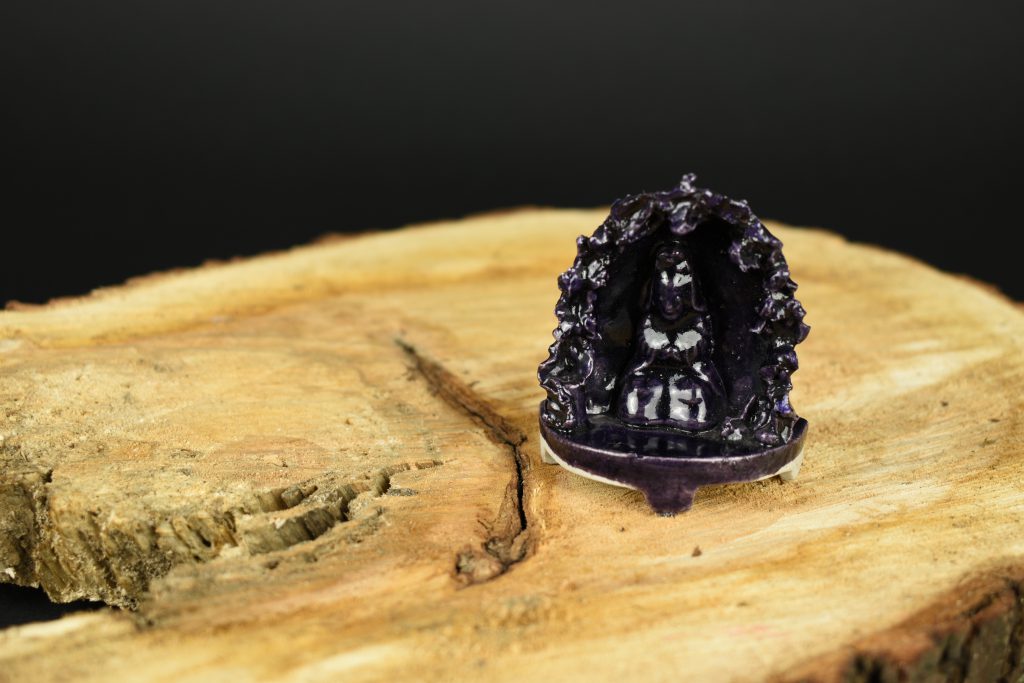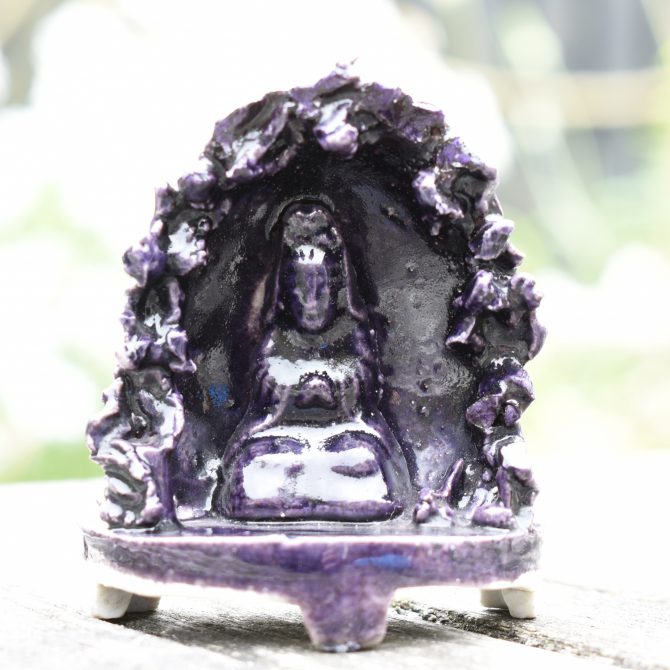
A Kangxi or Yongzheng Biscuit Porcelain Model of Guanyin
An Early 18th Century Biscuit-Porcelain aubergine glazed Incense figure of Guanyin in a grotto, late Kangxi or Yongzheng c.1700-1730.
SOLD
- Condition
- There are some losses to the rock work that have been overpainted especially at the top.
- Size
- Height : 7cm (2 3/4 inches)
- Provenance
- From a Private European Collection of Chinese Ceramics.
- Stock number
- 23006
Information
Guanyin :
Guanyin is actually the shorter form of the name Guan shi yin, which means “one who observes the voices of the world.” True to her name, Guanyin listens to and understands the worries that plague man`s existence. Because of her mercy and generosity, Guanyin is the most-loved of China`s divinities. the one people turn to for assistance in their everyday lives. Guanyin is specially venerated by those who are hoping to have children or those who are about to set out for sea. Guanyin is usually portrayed wearing a white cape. In her right hand, she holds a dish that has holy water and on her left hand, she carries a willow branch. On her head is a crown in the style of the Amitabha-buddha. She is usually depicted riding on a dragon across the sea or on the back of a tiger; often, she is shown meditating in a seated position. Guanyin has been given the same qualities as the Virgin Mary of Catholic theology, which is why she is sometimes portrayed holding a child in her arms. While the worship of Guanyin in could be traced historically from India, she is the star of countless legends and folk tales in China. One of the most famous versions tells of the unselfish young princess, Miao Shan. In the story, Miao Shan was being forced to marry a rich man she didn`t love. She rebelled against her father, putting up as many barriers to the marriage as possible, even saying that she would rather enter the nunnery than get married. Miao Shan underwent a lot of challenges, but she managed to overcome all of them. The point being that Miao Shan had a generous and unselfish heart. Because of her virtue, she was going to be taken straight to the land of the immortals, but at the moment when she was about to step into paradise, Miao Shan turned to look at the earth one last time. Upon hearing the cries and complaints of men, she decided to stay on earth to help and console those who are suffering. Miao Shan is believed to have turned into Guanyin, the goddess of mercy. Guanyin`s home on earth was the Putuo mountains, located on an island on China`s eastern coast to the south of Shanghai. In China, Putuo-shan is one of the most sacred places in Buddhism and the temple dedicated to Guanyin on the mountain is one of the most important pilgrimage site for Buddhists and non-Buddhists alike. The Chinese believe that gods and saints exist in our world and everyday life. They turn to Guanyin when needed, and they strongly believe that all it takes to secure her aid is to mention her name — for, without a doubt, Guanyin is listening and will come to your aid in no time. Guanyin`s birth is celebrated on the 19th day of February, and her enlightenment is celebrated on the 19th of September. On those days, the pilgrims flock to Putuo mountain. Guanyin is so popular in the whole of Asia that, as an example of how well everyday life can merge with holiness in the East, electronics giant Canon has taken Guanyin as its Japanese name.
